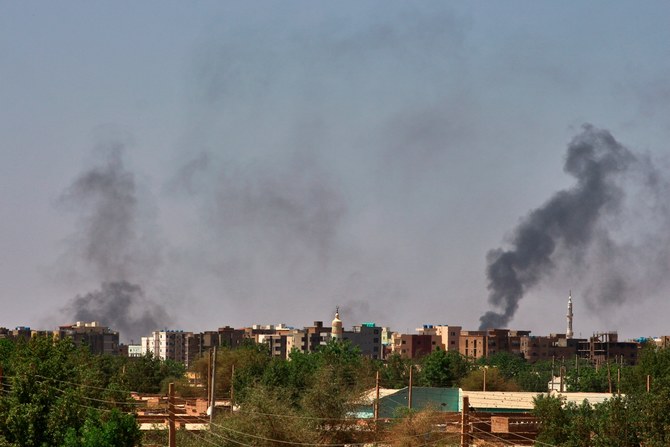Dr. Majid Rafizadeh
The risks and threats that a protracted and heightened conflict in Sudan can pose, not only for this African nation but also for the Horn of Africa region and beyond, should not be underestimated.
First of all, it is important to point out that increased violence and conflict in Sudan can provide a ripe environment for terror groups to emerge, mobilize, recruit, grow and gain power. The modus operandi of terrorist groups such as Al-Qaeda is generally anchored in efforts to further destabilize a country or region and create chaos, providing a good space that the terror groups can exploit and prosper in. We have witnessed this phenomenon in the Middle East, where some terror groups have attempted to use conflict in order to divide communities, pursue a sectarian agenda, capitalize on people’s fears and sow discord between Shiite and Sunni communities in order to gain power and control.
A second problem is that terrorist groups might be capable of finding some state or nonstate allies that are willing to provide finances, military assistance and advice, intelligence and training. This further increases the threat they pose in the region and on the global level. Through the prism of the realist school of thought in political science, whenever a conflict erupts in a country, states react in one of a number of ways. Some may view the conflict and instability from the perspective of political opportunism. As a result, they may support some specific groups and intervene directly or indirectly through financial, military, advisory, intelligence or political support to shift the balance of power and use the conflict for their own geopolitical, strategic and geoeconomic interests.
Some other countries will attempt to resolve the conflict diplomatically, such as Saudi Arabia’s initiative in Sudan – the Jeddah Declaration of Commitment to Protect the Civilians of Sudan. Other states may only try to prevent the spillover of the conflict into their own territory. After gaining power and momentum, terrorist groups can push to take over or have a significant say in any new political establishments in the country.
Other possible objectives include establishing supremacy, the advancement of hegemonic ambitions, achieving specific ideological and foreign policy objectives, and exporting their ideology to other countries. In addition, some terror groups are used for asymmetrical warfare. Having found a safe harbor, terror groups can also create complex networks in order to facilitate their operations in more than one country, as well as to use cyberterrorism to conduct attacks on various governmental, nongovernmental and private sector entities. They will also likely attempt to find more allies, regardless of their religious nature, as long as the allies share the group’s ideology and objectives. Examples include some terror groups that were operating not only in Iraq, but also in Syria and other countries.
The other vital issue is that the number of terror and militia groups will continue to increase as conflicts escalate. The world witnessed in the last decade how the protracted conflicts in Syria and Iraq led to the rise and prominence of terrorist groups such as Daesh, which made remarkable advances and controlled a significant amount of territory. Sudan, in particular, is in a very vulnerable position when it comes to being exploited by terror groups due to the country’s socioeconomic status, its lack of powerful security apparatuses, its widespread poverty and its location and geography. In addition, Sudan also lacks effective counterterrorism strategies, such as the productive policies that are implemented in the Gulf nations, including Saudi Arabia and the UAE. As a 2020 report by the Rand Organization explained: “Sudan’s location makes it a potential gateway for linking hubs of militant activity in north, central, and east Africa. This is particularly true given that movement across the country’s borders is not difficult.
Most land crossings are highly informal, or, due to their sheer length, unmonitored. Where official posts do exist, they are generally poorly staffed and underequipped, relying mostly on paper ledgers to record the details of those who enter and exit the country. Militant groups could exploit these dynamics to establish rear bases that are used to support and facilitate the movement of operatives across various theaters of conflict.” Besides terrorism, a second threat is linked to the humanitarian facet of the Sudan conflict, which includes the deprivation and hunger it has inflicted on people of all ages.
The third important issue and risk is the massive displacement that such conflicts cause. The escalation of the conflict in Sudan is already having severe repercussions not only for the Sudanese people, but also for the stability and security of several other nations in the region. In a nutshell, the threats that the Sudan conflict can create should not be underestimated. One of the biggest threats is that it could create a ripe environment for terror groups to gain power and inflict damage not only on Sudan but also beyond its borders.
This is why it is crucial for the international community to immediately act in order to find a permanent resolution to the crisis in Sudan. The longer a conflict continues, the more difficult it becomes to chart a path that will bring peace, stability and security back to the affected nation.
Arab News







